Archive for 2010
Wednesday, January 13th, 2010
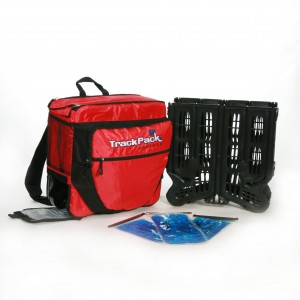
I connected with Andrew Shelton from Trackpack Coolers through LinkedIn a few weeks ago when I first approached him about this interview. In the interview below Andrew shares with us his unique insight and advice on everything from NASCAR to the best type of shopping cart to put on your small business website!
Tell us about Trackpack Coolers and who you focus on serving?
TrackPack Coolers LLC manufactures a unique backpack style beverage cooler that is capable of chilling and dispensing 20 “beverages” of your choice! Each TrackPack® Cooler includes three reusable freezer gel-packs, our proprietary dispensing frame, and a waterproof liner insert – so the frame can be removed and the cooler can be filled with just about anything, including ice. Our customers include tailgaters, race fans, music festival attendees, and many more…
How did you get started selling online?
The company was founded in 2006 and began retailing in early 2007; in the very beginning, our website retail channel was our ONLY point of sale. It was through our website that we were able to introduce our product to the consumer AND retail markets. We now have 5 different sales channels including retail, promotional, direct to customer, website drop-ship, and our own web retail site.
Where will Trackpack Coolers focus most of its energy in 2010?
2010 is going to be a significant growth year for our company. We are currently focused on a few key additions to our core product line, and we are also looking forward to announcing some important marketing and distribution partnerships.
If you had 2 lessons learned from your business that you could pass on to others about selling online, what are those?
Consider your customers at all times. We are constantly running tests on which landing pages, ad-words, or page layouts yield the best conversion ratings. We have found (through trial and error) that:
1. Retail sites should be as dynamic and tactical as possible – Less copy, more images and bullets.
2. Make checkout processes as convenient and easy as possible. The more pages someone has to click through, the greater the chances that you’ll end up with an abandoned cart!
As 2009 closes, what do you see as 2 new trends in your business this year?
1. There has been a considerable tightening in the competitiveness in the retail market model.
2. We quickly rebounded against traditional retail market constraints through more effective use of internet marketing– which has proven effective as we have seen a significant growth in our web-related sales model.
If your business/store could be any movie or movie character, what movie/movie character would it be and why?
Bob Mapplethorpe from Bottle Rocket (1996).
Dignan: Bob Mapplethorpe, potential get-away driver: go!
Bob: Well, I think there’s a real air of mystery about me.
Dignan: Don’t complicate it. Your number one strength is you have a car you can provide. Sell yourself! Start over. Ready, go!
Bob: Okay, alright. I’m a risk taker! I’m growin’ an entire crop of marijuana plants in my parents back yard! I think that shows…
Dignan: Wait, you’re growing an entire crop of marijuana in your back yard?
Bob: Dignan, look. I’m just not very good at this selling-yourself stuff, okay? So, I’m just gonna tell you the truth. I really wanna be a part of this team. And I’m the only one with a car.
Dignan: That’s good. That’s good. ‘Cause that hits me right here.
If Trackpack Coolers could have a dream spokesperson for your company who would it be and why?
That’s a tough question. We’ve put in a lot of time into marketing within the racing community (NASCAR) because many of the venues allow our coolers to be taken into the events. Additionally, the NASCAR fan base is consistently noted as one of the most brand-loyal followings in all of sporting events. Also, a race car driver is relatable to the function and uses of our product… cold beverages at a NASCAR race that can be accessed quickly. So really, we’d have to say any of the major drivers…
How do the folks at TrackPack Coolers let loose after a busy day working?
Let’s get serious; we make a cooler that dispenses 20 drinks… what’s a workday?
Do you have any parting thoughts for our readers and the small business community?
Ultimately, initiative is what distinguishes a successful business from someone with a great idea. The initiative to implement your idea comes from creativity, determination, and incremental goal setting. Ideas come to fruition through a series of small steps—it doesn’t all happen in a day. You just chip away, each daya little at a time, while keeping the overall objective in mind. To keep the long-term goal in perspective, you can’t ride roller coasters…there are ups and downs, but consistency and tenacity is ultimately what gets you through. Most importantly: Don’t let anyone tell you no. You are your own best advocate and no one is going to do the work for you. Don’t let obstacles prevent your idea from ever being tested – you have to go out and do it.
 Tweet This Post
Tweet This Post
 By nature, I’m a contrarian. It could be that I just like to argue, but if the conventional wisdom is one way, I’m inclined to believe the opposite. Since “Blink” and “Tipping Point” became the reference points for almost everyone in the business world, I started to heavily discount any theory or research posited by Malcom Gladwell. The great thing about being a contrarian, you don’t even need to read the work or understand the position that you’re disagreeing with — you just take the opposite side. So, of course, I had a very good handle on Mr. Gladwell’s work without actually reading it. Unfortunately, my intentional ignorance didn’t last long. As a reader of the The New Yorker, I kept coming across articles that I really enjoyed. The problem: these articles were written by Malcom Gladwell. When does this guys sleep? He’s everywhere. I wouldn’t be surprised if shows up on Sesame Street, explaining supply side economics in a child-friendly way.
By nature, I’m a contrarian. It could be that I just like to argue, but if the conventional wisdom is one way, I’m inclined to believe the opposite. Since “Blink” and “Tipping Point” became the reference points for almost everyone in the business world, I started to heavily discount any theory or research posited by Malcom Gladwell. The great thing about being a contrarian, you don’t even need to read the work or understand the position that you’re disagreeing with — you just take the opposite side. So, of course, I had a very good handle on Mr. Gladwell’s work without actually reading it. Unfortunately, my intentional ignorance didn’t last long. As a reader of the The New Yorker, I kept coming across articles that I really enjoyed. The problem: these articles were written by Malcom Gladwell. When does this guys sleep? He’s everywhere. I wouldn’t be surprised if shows up on Sesame Street, explaining supply side economics in a child-friendly way. 



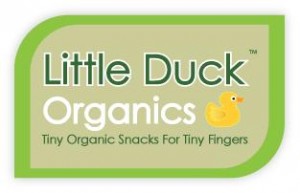 Today’s KikScore interview is with Zak Normandin, owner of
Today’s KikScore interview is with Zak Normandin, owner of 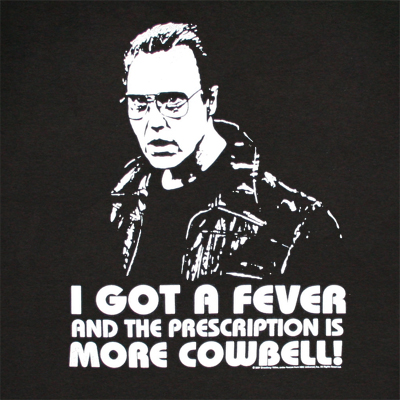
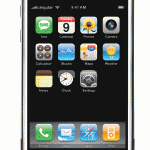 I won’t get into the Smart Phone wars…Google vs. Sprint vs. Apple. I own an iPhone. The phone aspect is truly horrible…unless you enjoy the excitement of wondering whether you’ll get through an entire conversation without have the call drop on you. But the Apps on the iPhone are great. As I was on a business trip, I was noticing how often I used certain Apps to get through the day.
I won’t get into the Smart Phone wars…Google vs. Sprint vs. Apple. I own an iPhone. The phone aspect is truly horrible…unless you enjoy the excitement of wondering whether you’ll get through an entire conversation without have the call drop on you. But the Apps on the iPhone are great. As I was on a business trip, I was noticing how often I used certain Apps to get through the day.  When starting a small business, what drives and motivates you? Is it passion for a cause or the imminent proof that there is a vacancy for a certain need? In talking with a variety of small business owners for our KikScore blog, the desires and drive to start their own venture vary as much as the different products and services they offer such as
When starting a small business, what drives and motivates you? Is it passion for a cause or the imminent proof that there is a vacancy for a certain need? In talking with a variety of small business owners for our KikScore blog, the desires and drive to start their own venture vary as much as the different products and services they offer such as 
 Most of us on the KikScore team work day-time jobs. Working on nights and weekends is very reminiscent of grad school — your days are filled up and then you do your homework at night. Not a big deal. We are all thankful for our jobs as well as having a growing side business.
Most of us on the KikScore team work day-time jobs. Working on nights and weekends is very reminiscent of grad school — your days are filled up and then you do your homework at night. Not a big deal. We are all thankful for our jobs as well as having a growing side business.
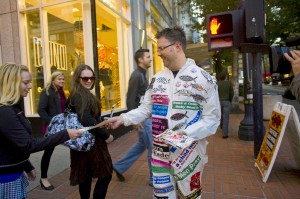 Small and start-up businesses need to build an identity in the marketplace. With or without using our KikScore service, a newer or lesser-known business needs to establish a brand that is recognized and trusted. But newer and smaller businesses are often just the reflection of the individual owners, so what do you do as a business owner so as to not offend a possible customer or partner?
Small and start-up businesses need to build an identity in the marketplace. With or without using our KikScore service, a newer or lesser-known business needs to establish a brand that is recognized and trusted. But newer and smaller businesses are often just the reflection of the individual owners, so what do you do as a business owner so as to not offend a possible customer or partner?